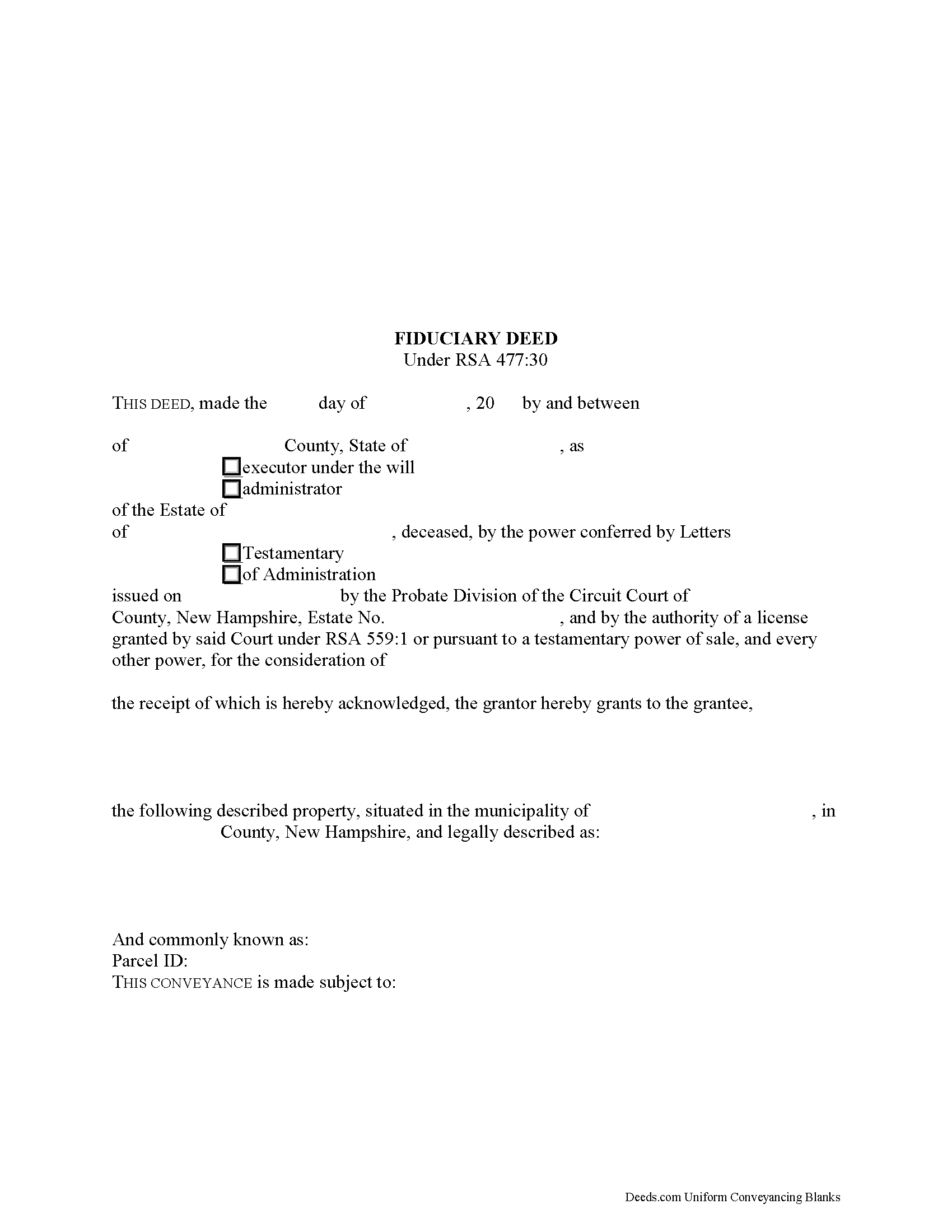Download New Hampshire Fiduciary Deed Legal Forms

New Hampshire Fiduciary Deed Overview

The fiduciary deed is a statutory form under RSA 477:30. In the context of estate administration, a fiduciary is either an executor of a will or a court-selected administrator appointed when the decedent dies without a will or an executor cannot serve.
Execute a fiduciary deed to convey realty from an estate to a purchaser following a sale of real estate. The executing fiduciary must have a license to sell real property granted by the court, or granted a power of sale by the decedent's will.
Alternately, use a fiduciary deed to distribute property to a person entitled by will or by law to receive it from the decedent's estate, pursuant to a decree for distribution by the court.
Fiduciary deeds convey realty in fee simple to their named grantee with the following covenants: that the grantor was duly authorized to make the sale of the premises; that the grantor has complied with statutory requirements of sale; and that the grantor will warrant and defend the title against the lawful claims of persons by, from, or under him or her in his or her representative capacity.
The deed identifies the capacity of the grantor (in this case, either executor or administrator) and names the decedent and probate information. The deed also recites any consideration given for the transfer, and contains a legal description of the subject property. The document must meet all requirements for form and content of documents affecting title to real property in the State of New Hampshire. The acting fiduciary must sign the deed in the presence of a notary public before recording in the registry of deeds in the county wherein the property is located.
Consult an attorney licensed in the State of New Hampshire with questions regarding probate procedures in the state.
(New Hampshire FD Package includes form, guidelines, and completed example)